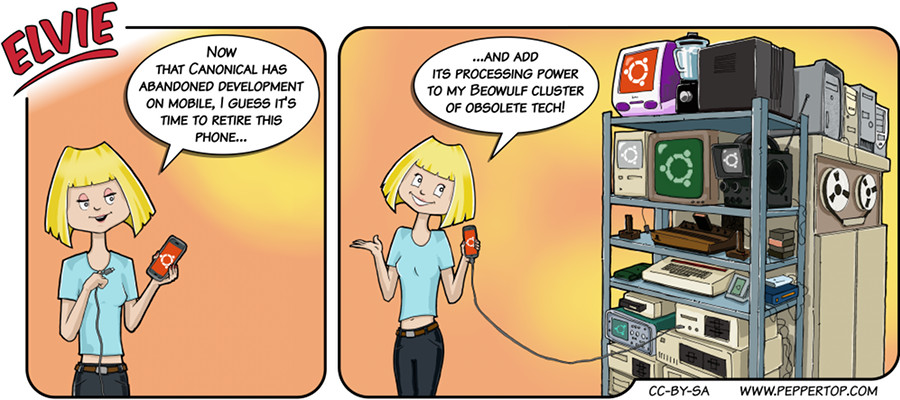The lack of Free Software OSes on mobile isn't a software issue...
This week Distrowatch announced the release of a new version of JingOS, a Chinese Ubuntu-based Linux distro oriented for tablets and mobile devices that aims to integrate touch, pen and keyboard/mice inputs, while maintaining full compatibility with GNU/Linux and Android alike. Truly an ambicious goal, but judging their showcasing at least makes me feel that they aren't far from it.


JingOS's story shows us that GNU/Linux on mobile doesn't have to be the dream that so many had back in 2010 when Android was considered "Linux-ish" and Cyanogenmod was still cool, at least in a technical way: the software is advanced, and well developed. But if that's the case, how come we don't see Linux in more mobile devices?
The answer is: because lack of Linux on mobile is not a software problem - rather, a hardware one. Actually, not even a hardware problem - it's a vendor one. Ok, scratch that, it's not a vendor problem either - it's a policy problem. Companies simply don't want to make their devices more open and compatible with free operating systems and the people who tinker with them - starting with Google.
AOSP? Please... It's as "open source" as the Chromium Browser.
The consequence is that great software projects like this have to resort to building their own hardware in order to be shipped, instead of being installable in any device like it's done in the PC world. JingOS sells its own tablet with the OS preinstalled, just like PINE64 does with tablets, phones and even laptops, and does pretty much every other project that develops for mobile. But don't be fooled: this is not a limitation of the hardware or software being developed.
It's an artificial limitation postulated by those who'd rather not lose the exclusivity on their products.
I really would like to see more "Linux on mobile" projects, but if I could choose I'd rather have them take the Puppy Linux approach, and become installable in older phones instead of having to resort to new ones tailored only for them. PostmarketOS is a step in the right direction, but unfortunately the list of confirmed and supported devices isn't very large (again due to that artificial limitation).
Until this issue gets fixed (by forcing vendors to open up, perhaps), I guess we'll still be piling up premature garbage, technological victims of planned obsolescence, in a manner similar to this Elvie comic.

What's your feeling about Linux on mobile devices? Do you feel that with the intense "lobbying" of Google and manufacturers the situation is likely to get any better in the future? Let me know on Mastodon!
This post is number #10 of my #100DaysToOffload project. Follow my progress through Mastodon!
Last updated on 04/07/21